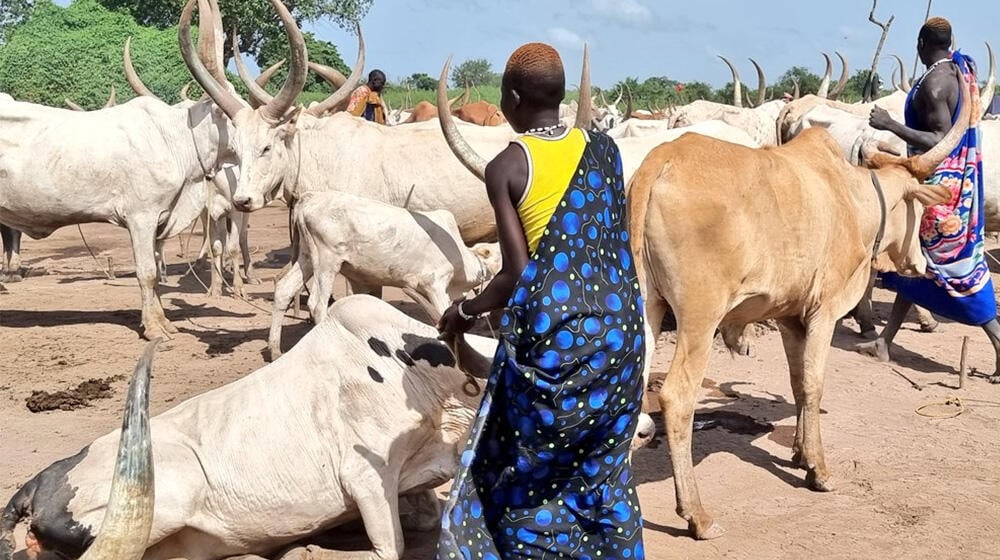The nomadic pastoralist community in Terekeka live purely pastoralist life where they value their livestock more than anything even their own lives which leaves women and young people particularly girls at risk of GBV and harmful practices. The women in cattle camps entirely do domestic work and children are tasked with cleaning the cow dung before livestock returns from grazing with no exposure to life beyond their home. Living in the cattle camps exposes women and girls too many challenges and limited access to important services such as health, education, security, among others.
UNFPA in the spirit of improving sexual reproductive health, promoting gender equality and menstrual hygiene is supporting pastoralists in cattle camps in Terekeka Country, launched a campaign with partners of Shabab Le Shabab to raise awareness of pastoralists in cattle camps. The area occasionally experiences conflicts among cattle keepers and is deeply rooted to cultural practices that leave women and girls with limited space to basics of human rights.
UNFPA support in peacebuilding initiatives with cattle camps with the objective to enhance menstrual health hygiene, prevention of gender-based violence, and mental health and community resilience. “Peace is fundamental in delivering programs for the population and development. As we launch the cattle camp peace project, we all have collective responsibility in actively working to build, deepen, and maintain peace while ensuring both men and women thrive, and the potential of young people is fulfilled” said Dr. Ademola Olajide, UNFPA Representative.
Young girls are married at a very early age literally out of their consent because it is culture and with no dreams of a better future as their lives are shut down into the vicious circle of poverty. Access to education particularly girls in cattle camps is not in any one’s dreams, menstrual hygienee is strongly attached to traditional practices of women being discriminated and isolated during their menstruation and with no sanitary pads.
In the cattle camps, using sanitary pads is considered to cause barrenness or infertility. With UNFPA support through local partners, a big shift of mindset of isolating young girls during their menstruation to acceptance to use re-usable local clothes to cover themselves during their menstruation period has been gradually achieved.
With no school around the community to keep the young people in school leaves the high percentage of the population of young people uneducated. No health centre within the community also leaves the community with no access to health services and mostly rely on traditional herbs. Child birth and maternal health are not proper with no medical attendance which accounts to reasons for health-related issues among residents of Terekeka such as fistula and maternal deaths.
The observed needs of young people at the cattle camps include health services especially sexual reproductive health, mental health, and menstrual hygiene management, education and peace reconciliations. The needs of women and girls at the camp are complex and affected by culture. The cattle camps are a unique set-up that UNFPA identified to promote SRH to ensure the services and information reach those in the last mile.
“Behavior change and shift of the mindset doesn’t happen in a day. UNFPA commits to continue to work and support communities beyond cattle camps across South Sudan to ensure that reproductive health services and information is accessible to communities for the women and girls to have a descent life” said Dr. Ademola Olajide, UNFPA Representative.


